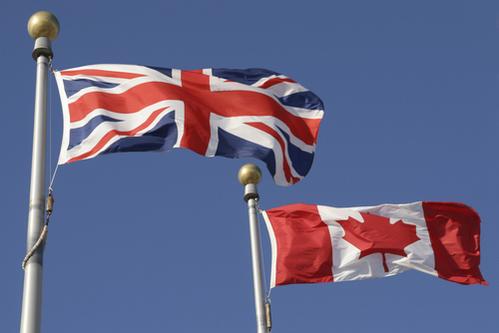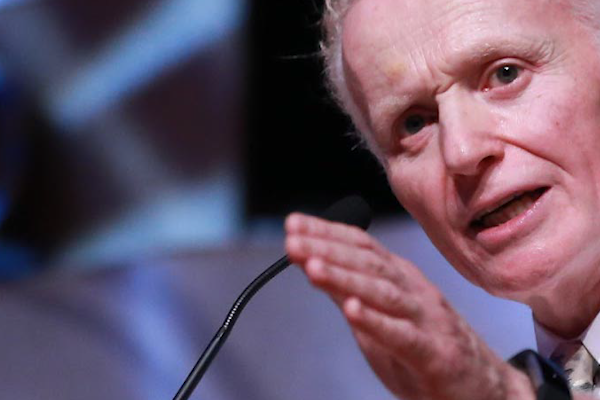To listen to the whining of the New Brunswick Opposition and Newfoundland Premier Danny Williams, you’d think that the recently announced deal to sell NB Power, the New Brunswick Crown-owned power utility to Quebec Hydro was a sell-out of the province’s interests. Balderdash. New Brunswick has been staggering under the weight of the poorly managed utility and its burgeoning debt for years. This deal provides a profitable way out. New Brunswickers should take it and be glad. Here is a piece that Tom Adams and I co-wrote for the NB Telegraph-Journal laying out the reasons why:
N.B. Power Deal: Good News Not Bad
By Tom Adams and Brian Lee Crowley
The proposed deal between NB Power and Hydro-Quebec brightens New Brunswick’s future. Consumers and taxpayers would reap huge savings while the province’s public finances would be transformed for the better overnight. Industrial users would immediately move to rate parity with comparable users in Quebec, where power prices are among the lowest in the world. Households, small businesses and institutional customers, for whom NB Power was planning rate increases of 3% per year out into the future, would get rates frozen for five years and regulated rates after that.
Yet Conservative David Alward, Leader of the Opposition, opines, “This deal is outrageous. If you are an ordinary New Brunswicker, you’re being sold down the river.†MLA Jeannot Volpé, former energy minister in the Bernard Lord government, called it, “a very stupid, stupid deal.”
In this the Opposition is taking their lead from Premier Danny Williams of Newfoundland and Labrador. He derides Quebec’s intention as a “despicable power grabâ€. He reserves his most vicious vituperation for New Brunswick’s government, which he accuses of “complete capitulation†in having “agreed to sell away their future.â€
What does the future hold for New Brunswickers under this deal? Mr. Volpé complains that rates for non-industrial customers after the rate freeze expires will increase at inflation and that potential future growth in demand will be served by power at market prices. Of course, NB Power’s rates have been rising faster than inflation and will continue this pace if the deal does not go through. NB Power’s recently acquired new supplies of generation are priced well above market.
NB Power’s government-guaranteed debt, which Hydro Quebec is taking over, is about $12,600 per customer. That monkey will be off New Brunswick’s back. NB Power’s operating costs and rates are some of the highest of any utility in Canada and both are under severe upward pressure. In most years New Brunswickers are lucky if the utility breaks even; punishing losses are frequent. Those losses will no longer be backstopped by provincial taxpayers.
Notwithstanding guaranteeing rate decreases and freezes, Hydro Quebec says the transaction will be profitable from year one, with an astounding expected return on equity of more than 10 per cent – well above the average return for Canadian utilities.
Hydro Quebec’s decision to take over NB Power is obviously based on Quebec’s assessment that it will have surplus electricity at rock bottom cost well into the future. Hydro Quebec’s sharply declining export revenues, declining load across the region, persistent negative prices in Ontario’s wholesale power market this year, and low market prices in New England, support the view that power will remain cheap for a while. New Brunswickers will benefit from those cheap prices under the proposed deal. Where is Mr. Alward’s proposal for bringing those cheap prices to New Brunswick while servicing NB Power’s debt?
Premier Williams’ opposition actually comes from another source that has nothing to do with New Brunswickers or their interests; the politicians in Fredericton should make sure they know what they’re getting into before following this pied piper.
Premier Williams wants to build a big hydro project on the Lower Churchill in Labrador and sell the power for top dollar. He fears that anything that reinforces Quebec Hydro’s dominant position in eastern North America makes that project less likely. But Premier Williams’ ephemeral dream to press ahead with Lower Churchill cannot proceed in today’s circumstances. This is not because of opposition from Quebec, but precisely because power prices are low and will stay that way for a while. Whatever other virtues Lower Churchill has, its power once delivered to paying customers would be very dear. Taxpayers in that province should be relieved, not outraged, that Nalcor, Newfoundland’s Crown energy company, is not out in the market the trying to sell costly power right now.
Rather than denigrating neighbours for their success, a success that costs his province nothing, Premier Williams should instead turn the Quebec – New Brunswick deal to his long-term advantage. How? By negotiating a transmission access agreement with Quebec to be activated in the future, when Lower Churchill power becomes competitive. Such a deal would cost Quebec little but would help to remove suspicion of their intentions while creating a constructive relationship with a potentially important business partner.
If the Newfoundland government could find the will to be constructive, it would set out terms for the design for a future transmission tolling agreement that allocates costs fairly, moves new Labrador power to market most efficiently, permits Quebec to earn a reasonable return on any prudent investment it makes, enshrines Newfoundland’s right to market access, and establishes an arm’s length dispute resolution mechanism. An excellent model for a deal would be to follow the lead of the transmission access requirements of the U.S. Federal Energy Regulatory Commission that already governs Quebec’s exports. If and when the economics of Labrador power development turn around, the challenging transmission riddle would then be solved.
When neighbouring provinces find creative solutions making both sides much better off, it is corrosive of our federation and antithetical to the essence of Canada for another province to take a bitter, beggar-thy-neighbour position. Instead of fostering acrimony, Premier Williams should butt out of the Quebec-New Brunswick deal and position Newfoundland to get into the power trading game on reasonable terms when the time is ripe.



